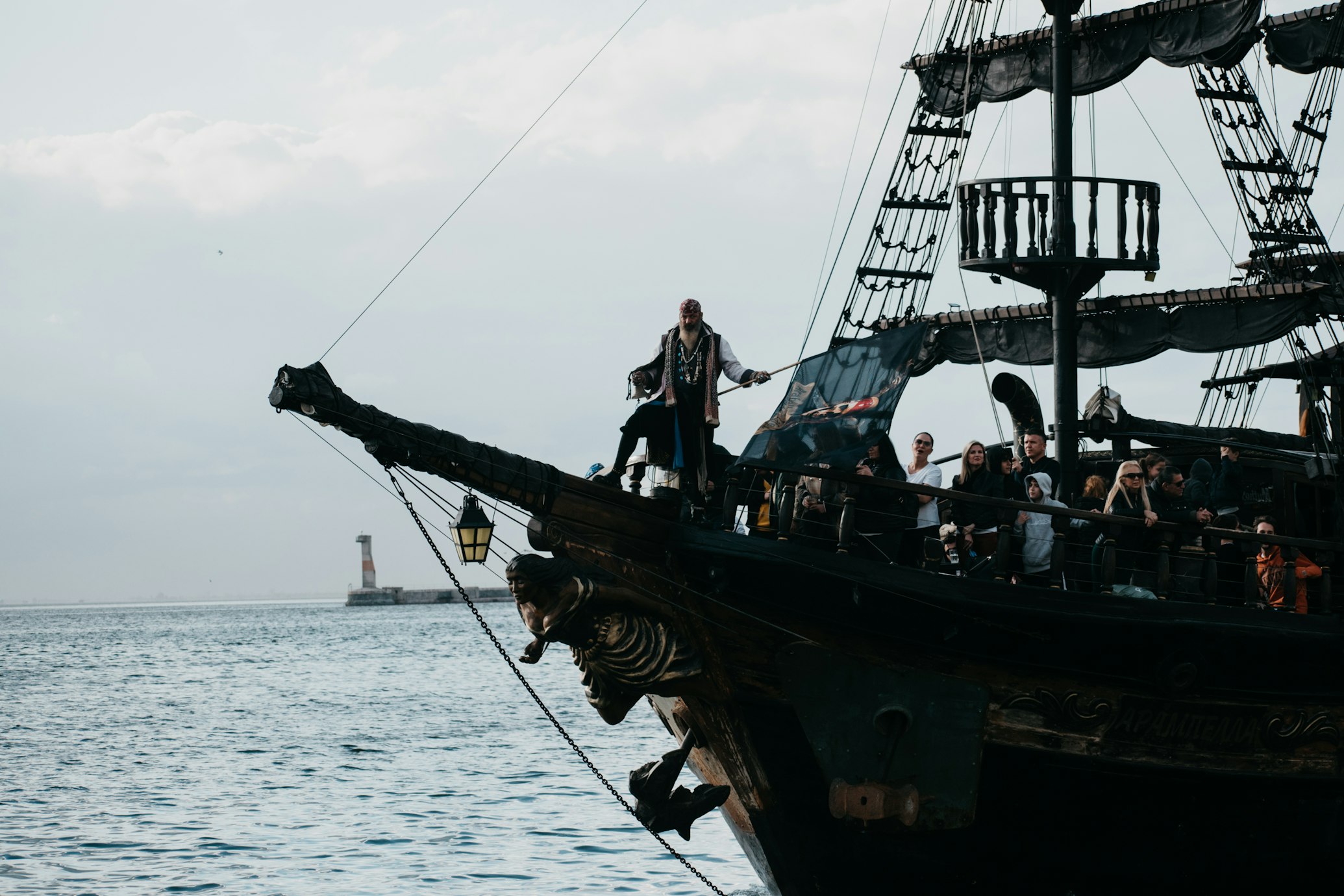
If you enjoyed Peter Pan and similar movies, you might like the concept of piracy. Some of the pirates depicted in films seem dashing and debonair. The reality, of course, didn’t much fit that mold, even in the era when many pirates sailed the Seven Seas. These ruffians often butchered their victims and showed little in the way of honor.
Most people don’t realize that modern piracy exists, but it does. The first half of 2024 saw 60 maritime pirate incidents.
You might want to know more about modern pirates. We’ll talk about them in detail now.
If you look at the world’s oceans as a whole, you’ll quickly see that it’s highly unlikely you will encounter pirates in the territorial waters of many nations. If you do encounter them, it’s probably because you’re in one of about a dozen different spots where piracy remains relatively likely.
These include off the coast of Peru, the Singapore Straights, the South China Sea, the Malacca Straight, and the Gulf of Aden. You might also encounter pirates in Falcon Lake, the Indian Ocean, the Bay of Bengal, the Sulu and Celebes Sea, the Arabian Sea, or the Gulf of Guinea.
Of all of these, some will see an occasional pirate attack. However, some have a reputation for consistent pirate activity.
These include the Singapore Straights. There are many pirates in that area, and operating in these waters carries a major risk element. The South China Sea also has some of the most bloodthirsty pirates you’re likely to encounter in the 21st century.
The Malacca Straight sees a lot of pirate activity because it’s a major trade route between the Pacific and Indian Oceans. The Gulf of Aden also sees a ton of pirate activity because it’s a major shipping route. Any goods passing between Somalia and Yemen must go through there.
You might also not understand why modern piracy happens. Usually, it’s the combination of a few different factors that creates favorable conditions.
First, you need territorial waters without a strong naval presence. If you look at several of the parts of the world we mentioned, you’ll see that’s something they tend to have in common.
In several of the parts of the world we just talked about, there’s a navy, but it’s small and doesn’t have much money. If it has any ships patrolling these waters, they’re not well armed.
A pirate crew probably won’t much fear a naval vessel that can’t fire on them from a distance. The navy also likely won’t try to board a pirate vessel if they know the individuals on board might have lethal weaponry.
In some of these parts of the world, it’s perfectly likely that the pirates will have better arms than the navy. That’s a scenario where the pirates can pretty much operate with impunity.
Piracy also often happens in parts of the world where there’s not much in the way of viable jobs for a lot of the working-age population. If you have young males who don’t have a valid way to make money to support their families, then joining up with a pirate crew often emerges as a popular option.
The pirate crew will often divide up their stolen goods equally, though the captain will get a larger share than the rest. The others can sell the booty they steal. They often have black market contacts that will pay for the goods they snatch while asking them no questions about where they got it.
The pirate crews that many of these young men join will treat them surprisingly well. There’s a sense of camaraderie among the pirates that they probably won’t find anywhere else.
These young men will often have a lot in common. They’re all coming from impoverished backgrounds. They will often drink alcohol or do recreational drugs together.
If they can have this kind of a life, and every few days their ship can attack a vessel that the crew spots carrying possibly valuable merchandise, there’s little incentive for the pirates to change their ways. Yes, they’re doing something illegal, but they may also feel that they have no other means of making any money or supporting their families consistently. They turn to crime for both economic reasons and cultural ones.
If you want to avoid pirate attacks, then you should try to stay out of the waters that we mentioned above. However, that is sometimes difficult if you operate or own a company that’s trying to move merchandise in that part of the world.
Sometimes, you can move your goods via an overland route. That’s not always possible, though. Usually, the companies that operate in these areas know about the probability of pirate attacks. They just don’t have a better way to move their merchandise.
You can also send your ships out with protection. That usually involves hiring private security forces that will put armed guards on the boats you’re using to transport your goods.
That’s far from a foolproof system, though. If you have a ship that comes under attack from multiple pirate crews at the same time, that could prove just as deadly for the security you hired as for the unfortunate crew members trying to guide your vessel to safety.
Modern piracy will probably not go away anytime soon. It’s too convenient and even desirable for many of the young people in certain parts of the world, especially the ones who either can’t find legal work or don’t have the skill set to get a decent-paying job.
Modern piracy does not resemble the swashbuckling lifestyle that old movies depict. It’s often dangerous, with many who get into it falling victim to unfortunate fates. Still, if you’re coming from an impoverished country and you’re desperate, you may have no problem with embracing this way of life.